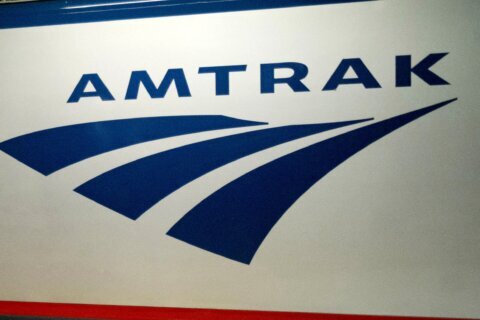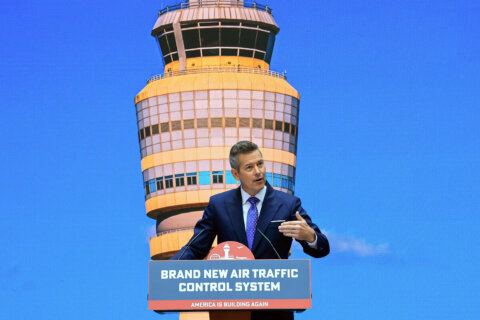The “mobile lounges” at Dulles International Airport are not only here to stay, they are set for an overhaul that will keep them around for decades to come.
A Metropolitan Washington Airports Authority Board committee is due to sign off Wednesday on plans to move forward with the contracting process both for 16 mobile lounges, which ferry people between terminals, and for 30 of the “plane-mates” that take passengers directly to and from planes parked out on the tarmac.
Companies will be allowed to suggest either rehabilitation and upgrade of the existing vehicles — some of which are nearly 50 years old — or they can offer to provide new vehicles.
The Airports Authority hopes the 30 plane-mates and 16 mobile lounges that will be in place within five years will be more modern and more efficient.
The current diesel engines in the vehicles are about 15 years old, frequently break down, and create difficulties finding spare components and parts.
Under the proposal, the authority would prioritize fully electric vehicles with charging stations. Diesel-electric hybrids would be the secondary option, and regular diesel engines would be the third choice.
All of that is dependent on price, but electric vehicles would qualify for special Federal Aviation Administration grants that could cover 75% of the estimated $115 million cost. The authority also hopes electric vehicles would be cheaper to operate given no diesel costs and projected lower maintenance costs.
The $115 million cost estimate includes design and fabrication work to replace the engines, major components and systems, and to install an electric charging infrastructure.
Dominion Energy is already separately working on a solar farm on airport property.
The alternative to the mobile lounges — extending the underground Aero Train to Concourse D — “was considered too expensive and unattainable in a few years,” board briefing documents said.
The authority has already met with vehicle manufacturers as part of the contracting process.
The next stages will include using experience, work plans and safety records to identify the top three teams that express interest in the project. They will then get 45 days to submit more detailed proposals, which will be ranked based on technical and pricing criteria.
“While the opening of the Aero Train reduced demand for Mobile Lounges, demand for Plane-Mates servicing the International Arrivals Building remains high,” the documents said.
There are currently 19 mobile lounges and 30 plane-mates in the fleet, with 14 mobile lounges and 26 plane-mates in service, the documents said.
The vehicles use about 260,000 gallons of diesel each year, and cost another $2.5 million or so each year to maintain.
The 120-passenger, 18-foot high mobile lounges were custom-built for the airport starting in 1962, and have had periodic upgrades since. Fully loaded, the vehicle is about 100,000 pounds, and has a top speed of 25 mph.
Plane-mates were built between 1971 and 1981. They are 24 feet high, hold 150 passengers, and weigh about 92,500 pounds fully loaded. They also have a top speed of 25 mph.
Both the mobile lounges and plane-mates last had engine replacements around 2005, and last had a larger overhaul 25 years ago.
“Most vehicle parts and components are no longer produced, requiring costly customized manufacturing to maintain. A major rehabilitation or replacement of the fleet is critical to continued safe, reliable and environmentally sustainable operations,” the documents said.







